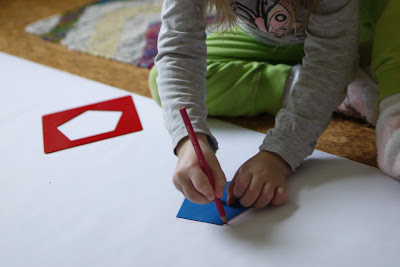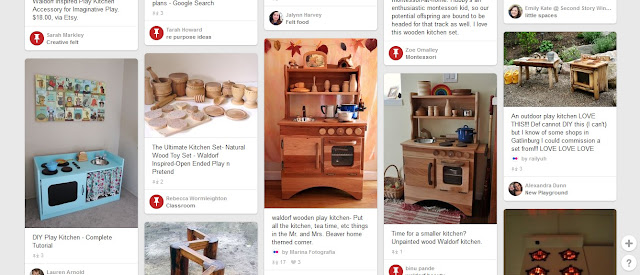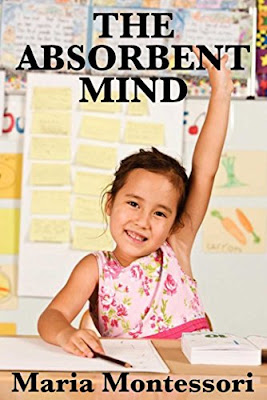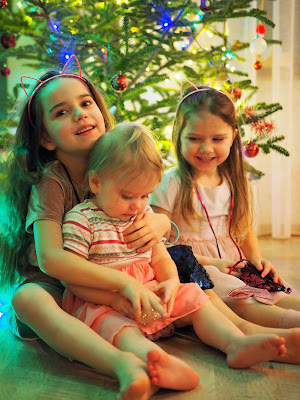Thoughts on kindergartens vs home(schooling)
In Estonia/Latvia paid maternity leave lasts until the child is about 1,5 years old. (In Estonia the same work place for the caretaker is available until the child is 3 years old.) So most of our little friends, who were the same age as Adelaide, have now gone off to kindergartens, as their mothers have returned to work. That's why this post has been in my mind for a while now, but I didn't want to rush with it, as I don't want to be insensitive. But I do want to write this down to express my opinions about kindergartens (or daycare) versus the child staying home, or perhaps even about homeschooling and why Adelaide is at home. This is a subject I could say a lot about, but I'll try to not be too harsh as I tend to be, don't want to offend anyone, and the disclaimer is that this is my opinion for our life. (And I realize that for other families the case can be different.)
The short way to say it would be: I enjoy spending my days with our children, seeing them grow and develop. I dislike kindergartens (or daycare, whatever you call it), I always have. I have not attended one as a child (Mr. Husband the same, he agrees with me on this strongly). I think the best, most natural environment for a child to grow up in is at home with their family. That is, at least until age of 3 (and for me it would be tragic to put a child in a daycare earlier than the age of 3. Until the age of 3 the child definitely should be with their mother, every article and research on child psychology says it), but perhaps even until age of 5-6-7, when the school starts (in Estonia/Latvia children start compulsory schooling at the age of 7). So (if we continue to be blessed as we have been so far) Adelaide is not going to be attending any kindergarten in any near future, if at all.
I have a good excuse to be home still, as we have little Jasmiina, but she is not the reason, Adelaide wouldn't go earlier than age of 3 for sure.. What comes after that, I'm not sure. I admit that a child can benefit from a good quality space for learning and socializing, depends, of course, on the child too (a more sensitive and attached child I would try to keep home longer than a social and brave one). But not for too long, a few hours a day, a few days a week is totally enough (8-12 hour day, as it often happens here, is insane for a child.) The problem here is the quality aspect. IF here would be a perfect little Montessori children's house, it probably would be a nice place for children to go to (after the age of 3), but then it probably would be expensive too, and then it actually makes sense to stay home and teach the children yourself, especially if there are many. (But here aren't any, I have no idea, why the modern Estonians have not made them..) And when it comes to the conventional kindergartens that are available here, I find it nearly impossible to see any benefits in them whatsoever. (I know it's harsh.. Can't help to feel like that.) I disagree with the things they do there.. They do not promote independence and individual, self-driven learning and freedom, as a Montessori-like environment would, they're all about one-size-fits-all strategy and pointless crafts (there was a great article on how the typical kindergarten crafts that children bring home, so that their parents could stick them on the refrigerator and feel good, are a waste of time for children and doesn't really benefit them anyhow). I have heard tons of negative stories about the kindergartens and I tend to hear negatives even in the good and positive stories.
Some bring the socialization aspect as a reason that children should attend kindergarten, but this is a total myth. Bringing together a small crowd of toddlers that are not really able to communicate or socialize, all the same age, is not going to teach them socializing. More likely it's going to be sort of an animal kingdom, strongest one wins type of thing. And that's not the socializing that I want my children to learn. They should experience the life as it is - meeting different kinds of people in different places and of various ages and occupations. Of course, they need some friends and playmates (brothers and sisters are great for this too), but they don't need to live with them from dusk till dawn. I already see this with Adelaide - she loves meeting all kinds of people. Frankly, children her own age are the ones she cares the least at this moment. She loves older children, from 3 up until age of 7.. (Her favorite is our little neighbor girl, who will be 7 soon.) She loves adults, old or young, as well as little babies. And with our guidance and help she is learning to interact with all of these people respectfully and kindly. In kindergarten settings, even if the teachers are great, they still never will be able to observe every single interaction between the children, that's why they come home having learnt all kinds of things and ways you probably wouldn't want for them to pick up. The articles that I have read, say that home children tend to be more polite and less violent in their interactions.
Some say that children must learn to survive in the crowd (society), even if it comes the hard way. Yes, perhaps, in some way true, they must be able to adapt to different life situations and we will not be able to protect them always, but here the important point is, that there are no benefits of throwing them into the lion cage too early. A 3 year old is an entirely different being than a 6 year old, for example. It's so much better to let a child go and manage on his own, when he or she is more ready, has been given a secure base, so that when coming across different people, actions and situations, they could react a lot more consciously. A pre-school child is only forming his personality, a toddler until 3 even more so, the most important, deepest layers of who they will become are being formed, that's why I want us, the parents, to be the ones who are influencing this, instead of some strangers, who we don't really know and probably don't even like. Home children are usually managing perfectly fine in their lives later on, if not better than the ones who have been crushed down by a bloody concurrence way too early on.
When it comes to the academics and the things they teach in the kindergarten, I am totally confident, that we can do as good or probably better job ourselves. As I always have said, being home with children can be done very differently, of course, and if they're put in front of a TV for most of the day, then yes, maybe kindergarten is a better place for them.. But you can also actually be with your children, spend time with them, talk with them, do things with them.. and this is the best for them. I love our days, when we can spend half of the day outside, then read books, play together, cook and clean together.. it's everything that a small child needs.
Some, especially in other countries, like US, call it homeschooling. Mostly somewhere after the age of 3, pre-school age, when giving them any type of education at home. Some take it very strictly and offer an actual full-on Montessori education at home. We'll see, what we will do, there's still quite some time until that, probably I'm going to be a bit more chill and I don't think it has to be called necessarily schooling, but it definitely is a respectable choice.
All in all, who knows, Adelaide is really social, and if I ever would start feeling, that she is not getting enough, that she would benefit from an organized daycare, I could enroll her.. But I doubt that. Because, if I'd feel she's missing out on something, I could take her out more, find more friends, some activity groups, go to museums, classes.. Options are endless and definitely more diverse than offered in a kindergarten. We'll see, how the sibling relationships will evolve, as they grow.. But hopefully it all goes well and the result will be, what we dream of, which is - happy children, who succeed in life and find their own path and meaning.
I have wanted to raise my own children since I was little, I have always known that.
P.S. I even think positively about actual homeschooling, which means teaching your school age children at home, however that is not the plan for us right now. Even though I definitely see the benefits of it, I see also flaws, and the plan is that our children probably will attend an actual school, once they're 7.
P.P.S. For Latvian readers - this is a good article on kindergartens that I agree with. (Take away the religious aspect of it, the point is still good.)
The short way to say it would be: I enjoy spending my days with our children, seeing them grow and develop. I dislike kindergartens (or daycare, whatever you call it), I always have. I have not attended one as a child (Mr. Husband the same, he agrees with me on this strongly). I think the best, most natural environment for a child to grow up in is at home with their family. That is, at least until age of 3 (and for me it would be tragic to put a child in a daycare earlier than the age of 3. Until the age of 3 the child definitely should be with their mother, every article and research on child psychology says it), but perhaps even until age of 5-6-7, when the school starts (in Estonia/Latvia children start compulsory schooling at the age of 7). So (if we continue to be blessed as we have been so far) Adelaide is not going to be attending any kindergarten in any near future, if at all.
 |
| Adelaide's first flower in a vase. She brought this to me from outside, I gave her the vase and she filled it with water and placed the flower there. She is learning something new every day. |
I have a good excuse to be home still, as we have little Jasmiina, but she is not the reason, Adelaide wouldn't go earlier than age of 3 for sure.. What comes after that, I'm not sure. I admit that a child can benefit from a good quality space for learning and socializing, depends, of course, on the child too (a more sensitive and attached child I would try to keep home longer than a social and brave one). But not for too long, a few hours a day, a few days a week is totally enough (8-12 hour day, as it often happens here, is insane for a child.) The problem here is the quality aspect. IF here would be a perfect little Montessori children's house, it probably would be a nice place for children to go to (after the age of 3), but then it probably would be expensive too, and then it actually makes sense to stay home and teach the children yourself, especially if there are many. (But here aren't any, I have no idea, why the modern Estonians have not made them..) And when it comes to the conventional kindergartens that are available here, I find it nearly impossible to see any benefits in them whatsoever. (I know it's harsh.. Can't help to feel like that.) I disagree with the things they do there.. They do not promote independence and individual, self-driven learning and freedom, as a Montessori-like environment would, they're all about one-size-fits-all strategy and pointless crafts (there was a great article on how the typical kindergarten crafts that children bring home, so that their parents could stick them on the refrigerator and feel good, are a waste of time for children and doesn't really benefit them anyhow). I have heard tons of negative stories about the kindergartens and I tend to hear negatives even in the good and positive stories.
Some bring the socialization aspect as a reason that children should attend kindergarten, but this is a total myth. Bringing together a small crowd of toddlers that are not really able to communicate or socialize, all the same age, is not going to teach them socializing. More likely it's going to be sort of an animal kingdom, strongest one wins type of thing. And that's not the socializing that I want my children to learn. They should experience the life as it is - meeting different kinds of people in different places and of various ages and occupations. Of course, they need some friends and playmates (brothers and sisters are great for this too), but they don't need to live with them from dusk till dawn. I already see this with Adelaide - she loves meeting all kinds of people. Frankly, children her own age are the ones she cares the least at this moment. She loves older children, from 3 up until age of 7.. (Her favorite is our little neighbor girl, who will be 7 soon.) She loves adults, old or young, as well as little babies. And with our guidance and help she is learning to interact with all of these people respectfully and kindly. In kindergarten settings, even if the teachers are great, they still never will be able to observe every single interaction between the children, that's why they come home having learnt all kinds of things and ways you probably wouldn't want for them to pick up. The articles that I have read, say that home children tend to be more polite and less violent in their interactions.
Some say that children must learn to survive in the crowd (society), even if it comes the hard way. Yes, perhaps, in some way true, they must be able to adapt to different life situations and we will not be able to protect them always, but here the important point is, that there are no benefits of throwing them into the lion cage too early. A 3 year old is an entirely different being than a 6 year old, for example. It's so much better to let a child go and manage on his own, when he or she is more ready, has been given a secure base, so that when coming across different people, actions and situations, they could react a lot more consciously. A pre-school child is only forming his personality, a toddler until 3 even more so, the most important, deepest layers of who they will become are being formed, that's why I want us, the parents, to be the ones who are influencing this, instead of some strangers, who we don't really know and probably don't even like. Home children are usually managing perfectly fine in their lives later on, if not better than the ones who have been crushed down by a bloody concurrence way too early on.
When it comes to the academics and the things they teach in the kindergarten, I am totally confident, that we can do as good or probably better job ourselves. As I always have said, being home with children can be done very differently, of course, and if they're put in front of a TV for most of the day, then yes, maybe kindergarten is a better place for them.. But you can also actually be with your children, spend time with them, talk with them, do things with them.. and this is the best for them. I love our days, when we can spend half of the day outside, then read books, play together, cook and clean together.. it's everything that a small child needs.
Some, especially in other countries, like US, call it homeschooling. Mostly somewhere after the age of 3, pre-school age, when giving them any type of education at home. Some take it very strictly and offer an actual full-on Montessori education at home. We'll see, what we will do, there's still quite some time until that, probably I'm going to be a bit more chill and I don't think it has to be called necessarily schooling, but it definitely is a respectable choice.
 |
| I love that we can spend all day outside, if we just want to and the weather is so nice. Outside is never-ending fun and so much to explore and learn. |
All in all, who knows, Adelaide is really social, and if I ever would start feeling, that she is not getting enough, that she would benefit from an organized daycare, I could enroll her.. But I doubt that. Because, if I'd feel she's missing out on something, I could take her out more, find more friends, some activity groups, go to museums, classes.. Options are endless and definitely more diverse than offered in a kindergarten. We'll see, how the sibling relationships will evolve, as they grow.. But hopefully it all goes well and the result will be, what we dream of, which is - happy children, who succeed in life and find their own path and meaning.
I have wanted to raise my own children since I was little, I have always known that.
P.S. I even think positively about actual homeschooling, which means teaching your school age children at home, however that is not the plan for us right now. Even though I definitely see the benefits of it, I see also flaws, and the plan is that our children probably will attend an actual school, once they're 7.
P.P.S. For Latvian readers - this is a good article on kindergartens that I agree with. (Take away the religious aspect of it, the point is still good.)






Comments
Post a Comment